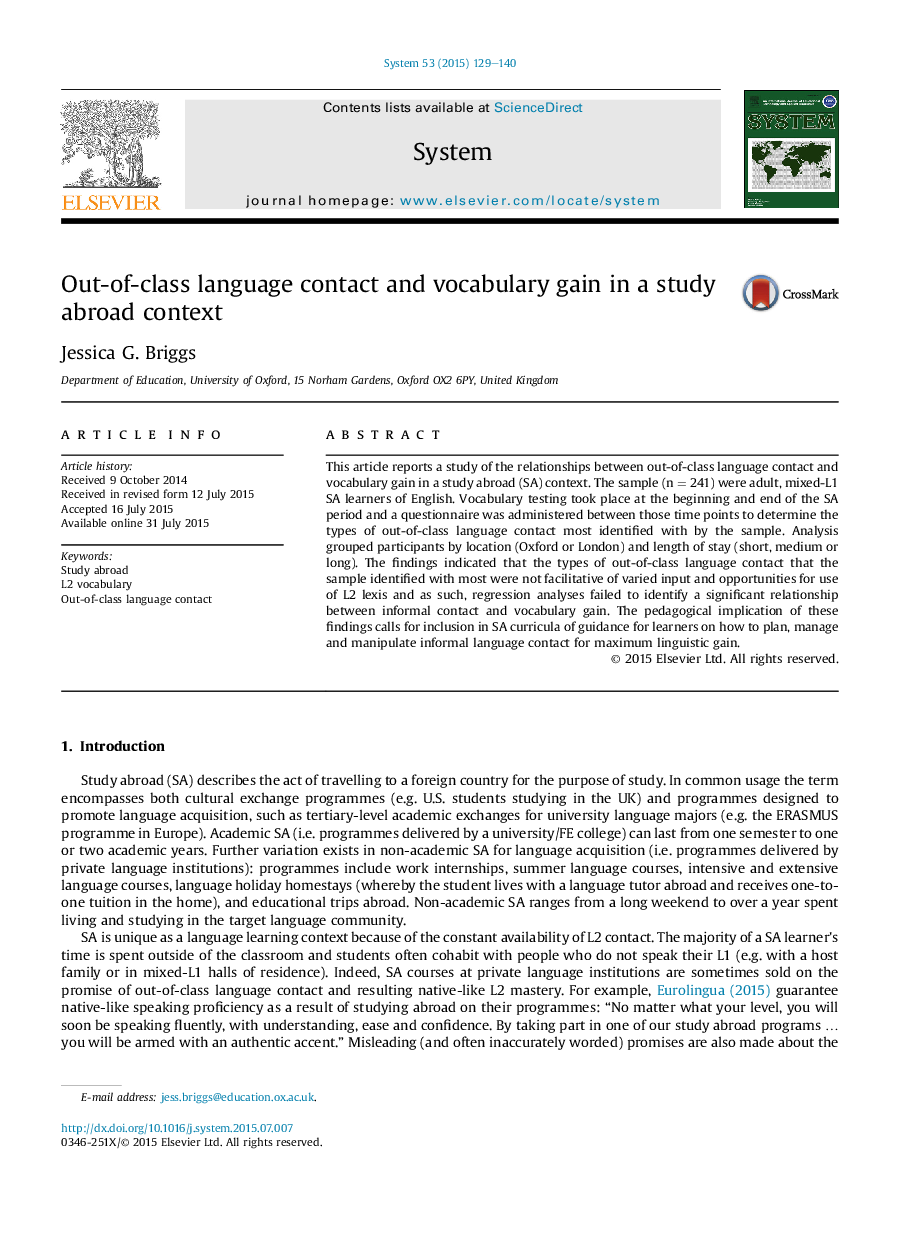| Article ID | Journal | Published Year | Pages | File Type |
|---|---|---|---|---|
| 373016 | System | 2015 | 12 Pages |
This article reports a study of the relationships between out-of-class language contact and vocabulary gain in a study abroad (SA) context. The sample (n = 241) were adult, mixed-L1 SA learners of English. Vocabulary testing took place at the beginning and end of the SA period and a questionnaire was administered between those time points to determine the types of out-of-class language contact most identified with by the sample. Analysis grouped participants by location (Oxford or London) and length of stay (short, medium or long). The findings indicated that the types of out-of-class language contact that the sample identified with most were not facilitative of varied input and opportunities for use of L2 lexis and as such, regression analyses failed to identify a significant relationship between informal contact and vocabulary gain. The pedagogical implication of these findings calls for inclusion in SA curricula of guidance for learners on how to plan, manage and manipulate informal language contact for maximum linguistic gain.
